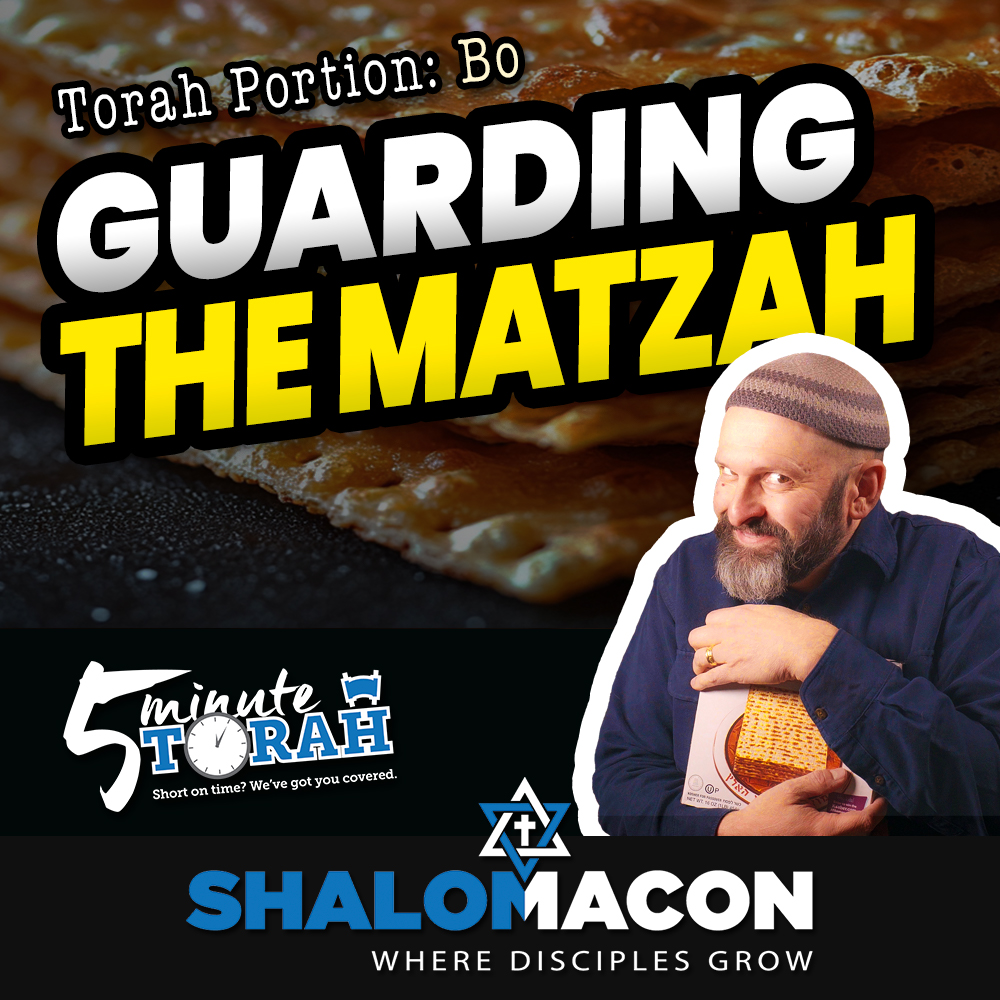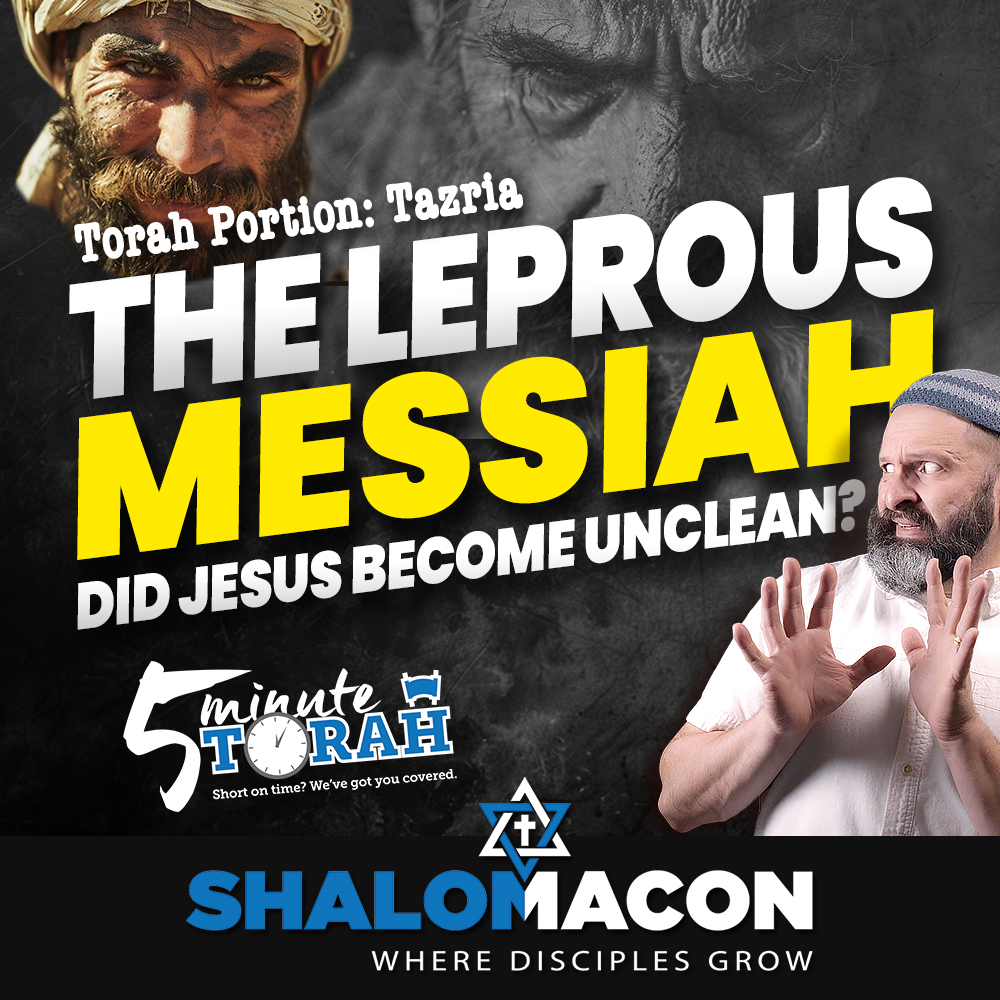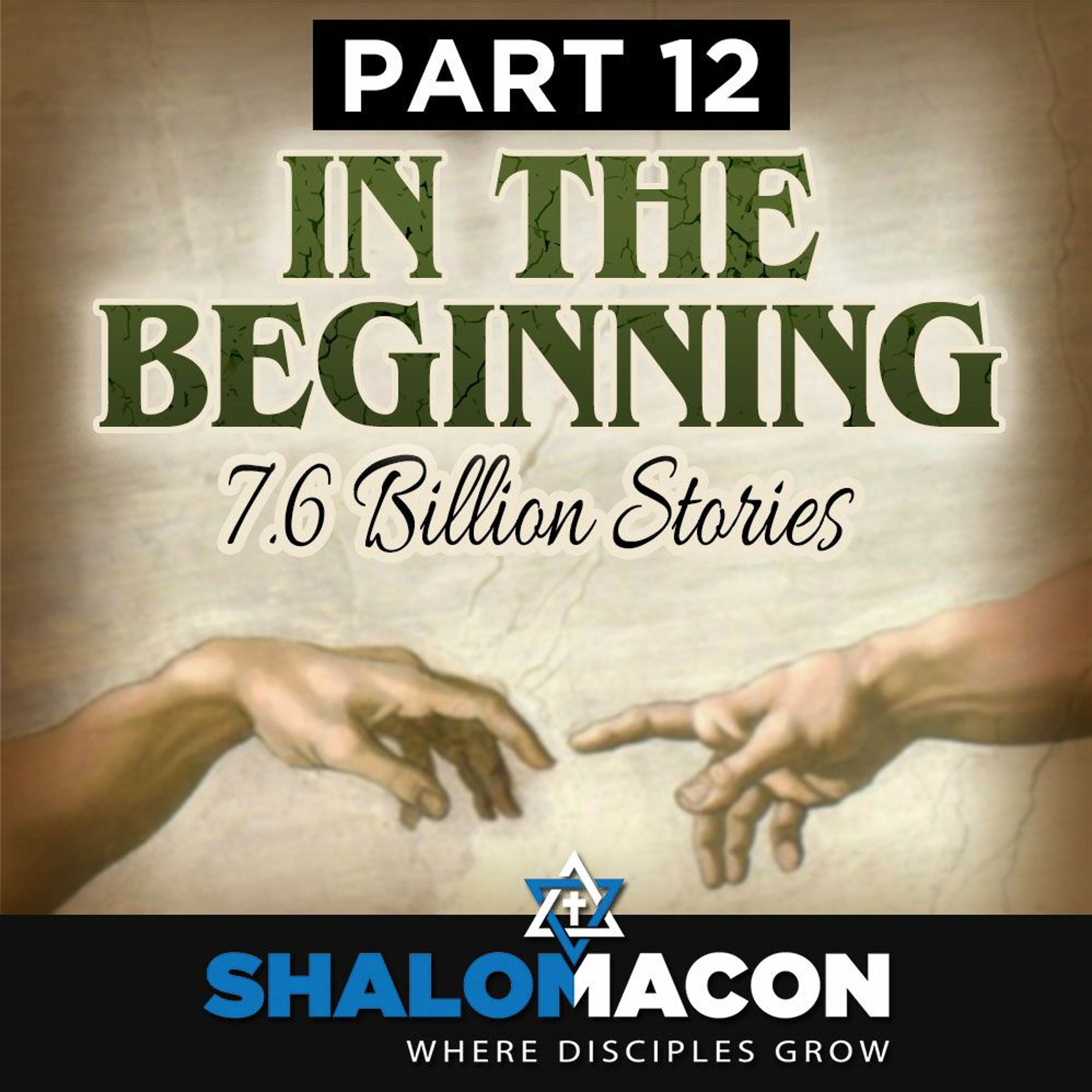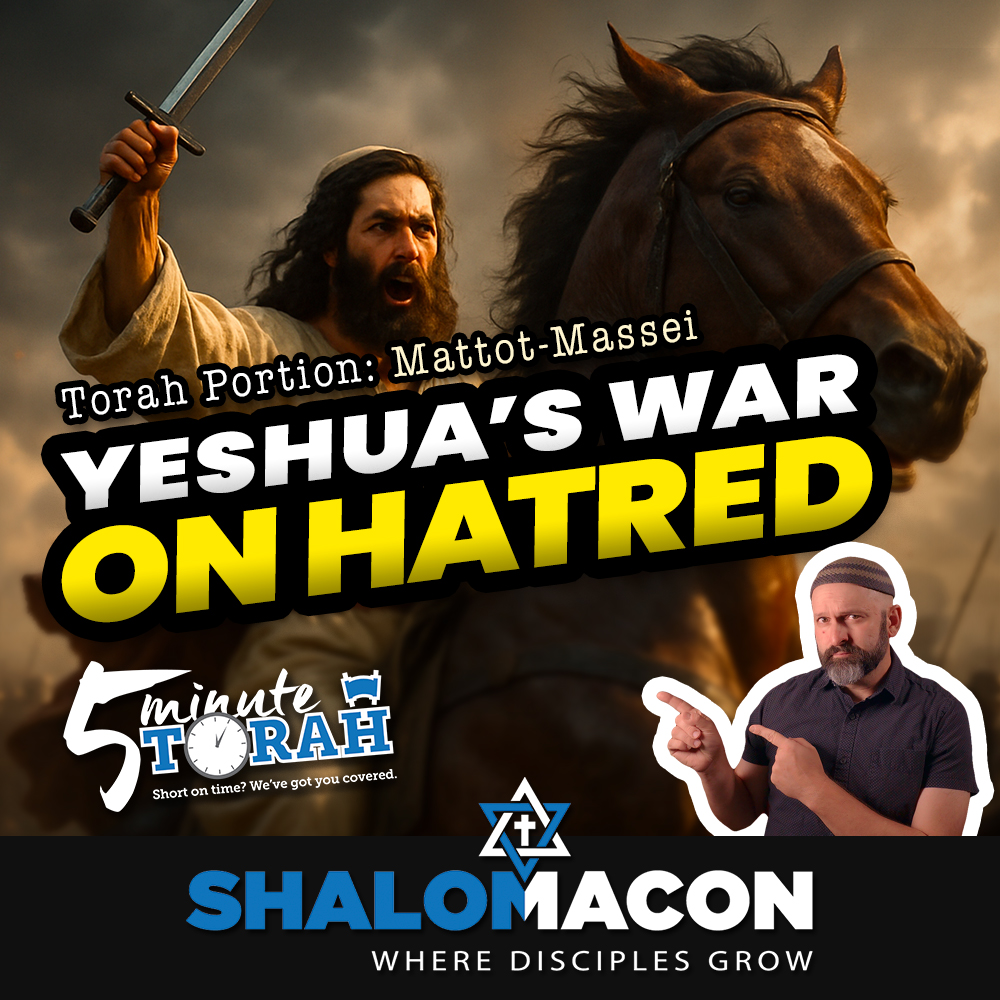Episode Transcript
[00:00:00] Speaker A: Archaeology is fascinating. In 2002, I took my first trip to Israel for an archaeological dig. It changed my life. Across Israel and the Middle east, you can see large hills where there were once ancient villages or cities that had been lost to time. Archaeologists call formations like these a tell. They are mounds created by human occupation over time, essentially layers of ruins from ancient settlements built on top of one another. But these sites, what were once cities and villages, have been lost to history simply by the slow infiltration of dust and debris and the eventual growth of vegetation. They no longer look like a place of habitation, but a hill covered with grass and trees. You might think it odd, but this archaeological depiction of these ruins of days gone by can actually help us understand an important mitzvah from this week's Torah portion and and give us deep spiritual insights into our relationship with God. Would you like to know how? Then let's take a look in this week's five minute Torah Shalom and blessings from Shalom Macon, the place where disciples of Yeshua learn, connect and grow. I'm Darren, and before I get into the five minutes of my five minute Torah commentary, let's cover a few quick facts about this week's Torah portion. This week we're studying the portion of Bo Exodus 10:1, 13, 16 and here are the three things that you need to know about it. Final Plagues the Ultimate Blow this week's Torah portion begins with the last three of the ten plagues God inflicted against Egypt. Locust, darkness, and death of the firstborn. With the locusts and darkness, Pharaoh refuses to let the children of Israel go yet again. Finally, the Lord has to bring about his final judgment by taking the lives of the firstborn of every house of Egypt. God told Moses about midnight, I will go out in the midst of Egypt, and every firstborn in the land of Egypt shall die. From the firstborn of Pharaoh who sits on his throne, even to the firstborn of the slave girl who is behind the handmill and all the firstborn of the cattle, there shall be a great outcry throughout all the land of Egypt, such as there has never been nor will ever be. Exodus 12:4 6. It came about exactly as the Lord had spoken. We read. And there was a great cry in Egypt, for there was not a house where someone was not dead. This is verse 30. It was the ultimate blow against the ultimate enemy of Israel. Number two, the Passover. A yearly reminder. Before the Lord cast his final judgment on Egypt, however, he gave the children of Israel instructions on how they could avoid the death of their firstborns. They were to take a lamb and after slaughtering it, use its blood to mark the doorposts of their homes in order to avoid the Lord's judgment. God said, for I will pass through the land of Egypt that night, and I will strike all the firstborn in the land of Egypt, both man and beast, and on all the gods of Egypt I will execute judgments. I am the lord. The blood shall be assigned for you on the houses where you are and when I see the blood, I will pass over you, and no plague will befall you to destroy you when I strike the land of Egypt. Exodus 12:12 13 God spared the lives of all the firstborn of Israel, and that night marked the very first first Passover. This night would be forever memorialized in a yearly celebration at the onset of the 15th day of the Hebrew month of Nisan with the Passover Seder according to the Lord's instructions and number three. The Exodus Leaving Egypt Once the final blow was struck against Egypt and Pharaoh finally relented to release the children of Israel, we read the Egyptians were urgent with the people to send them out of the land in haste. Exodus 12:33 A great multitude went up from Egypt that night, about 600,000 men on foot besides women and children. This is Exodus 12:37. They left in haste, not even allowing their doe to rise before the journey. It was a night of watching by the Lord to bring them out of the land of Egypt. So this same night is a night of watching kept to the Lord by all the people of Israel throughout their generations. Exodus 12:42 it was a night of deliverance, a night of salvation that would ultimately lead them to Sinai, where they would receive God's covenant, and to Canaan, the land of promise.
[00:04:23] Speaker B: Are you ready to take your Passover Seder to the next level? Do you want to have a meaningful connection to Yeshua during Passover?
[00:04:28] Speaker A: Then grab a copy of cup of.
[00:04:30] Speaker B: Redemption, my Messianic Passover Haggadah, and crank it up a notch.
[00:04:33] Speaker A: It not only walks you through the.
[00:04:34] Speaker B: Traditional Seder, but but it also connects Yeshua's last meal and his suffering with the various elements of the Seder. It's great for homes and Messianic synagogues as well as churches, and gives step by step instructions for conducting your own Seder. It also includes an appendix with articles that answer many questions and objections people might have about a traditional Seder, like why do we have an egg on the seder plate? And what's considered leavening? And is price low enough to snag a copy for everyone at your seder table. Just use the link in the description box below to gear up early so you can be ready to make this.
[00:05:02] Speaker A: Passover your best Passover this week's Torah commentary is called Guarding the Matzah and comes from my book 5 Minute Torah, Volume 3. In the Torah portion of Bo, we learn about the final three plagues, the culmination being the death of the firstborn. This is the final act of God that released the children of Israel from the grip of the Egyptian slavery. But right before this final plague was poured out, the children of Israel were given instructions for the Passover lamb and all that went with it. They were to take a male lamb without blemish on the 10th day of the month and keep it until the 14th day, when they would slaughter it. Then they would smear some of its blood upon the doorposts of their houses so that the firstborn of the Israelites would not face the same fate as that of the Egyptians. That night they were to eat it roasted on the fire with unleavened bread and bitter herbs, and whatever was not eaten was to be burned in fire. They were to eat it with their belts fastened, their sandals on their feet, and their staff in their hand, and they were to eat it in haste.
They were to observe all of these instructions meticulously so that the firstborn of the children of Israel would be spared when the Lord struck the firstborn among the Egyptians. After this, we read about how this event should be memorialized and relived year after year. Aside from the offering of the Passover lamb, most of the instruction is focused on matzah, unleavened bread. In Exodus 12:17, a fascinating instruction is given that most people miss because of our English translations. Most English translations render it and you shall observe the feast of unleavened bread. Considering the context, this translation seems to make sense. However, when we take a look at the original Hebrew, it doesn't exactly say this. The original text says ushmartem et hamatzot. This literally means and you shall guard the matzah.
From this direct commandment we learn that matzah used for Passover needs to be at a higher standard than matzah that is eaten year round. Matzah made for daily consumption is not concerned with the stringencies of matzo made specifically for Passover. Matzah that is kosher for Passover has protective measures that ensure no moisture comes in contact with it from the time the grain is milled until it's baked. However, there's another type of matzah, shmura matzah, guarded matzah. It has additional measures that ensure the grain is free from moisture beginning from the time it is harvested. A lesson can be learned here. If these extra precautions make the difference between regular matzo matzo that is kosher for Passover, and shmura matzah, then we must be able to learn something from the effort involved in each. What is the difference between a piece of matzah and a piece of leavened bread, particularly sourdough, which was really the only type of leavened bread known in the ancient world? One is flat, having been quickly baked before it could rise, and the other is puffed up, having risen before baking. They're both made from the same basic ingredients, flour and water. The difference between the two is that someone had to pay close attention to the unleavened bread to ensure that it did not rise where the other was left alone to do what it does naturally. Before we go further, we need to examine one more thing. If we look closely, this same passage contains a play on words that instructs us to guard the matzah. Since the Torah was written without vowels, this same phrase, ushmartom et hamazot, can also be read as ushmartem et ha mitzvot. The first means to guard the matzah, as we have already discussed, but the second means to guard the mitzvot, the commandments. In this reading, we learn an even deeper lesson. When we guard the matzah, we're guarding the commandments. How so? The Talmud asks, who prevents us from performing your will? In other words, God's will. It answers its own question with the phrase the leaven in the dough. As we know, leaven is the quintessential representation of sin. It represents that which is impure, corrupt, infected, and arrogant. Unfortunately, humans don't automatically do what is right. We make excuses for why we don't need to go out of our way to do something we know we should. But in the case of observing the details of the Passover lamb, it was critical to obey every detail of the Lord's instructions in order that the firstborn of the children of Israel would be spared. What would have happened if they decided to skip some of the details the Lord had instructed them to carry out? It would not have gone well. As seen in the analogy of the bread and with the archaeological sites I talked about in the introduction, it's easy to allow the leaven of sin to just creep in. Don't do much of anything. Don't put up your guard. Don't do regular self examinations. Don't spend regular time in prayer and study each day. Don't do anything that would enhance you spiritually. And especially don't go out of your way to observe a commandment with any kind of detail. Just go about life getting by with the least amount of effort possible. Sin will work its way into us without us having to do a single thing. The matzah will have been spoiled and the city overgrown, remaining pure and unblemished by sin. And the world, however, requires much effort. It requires us to be proactively aware of our spiritual condition and to guard against the influences of the world rather than sit back and allow the world and its influences to slowly permeate us. It's the difference between a loaf of bread and a piece of matzah. And to the degree we put up our guard, it's the difference between regular matzah and shmur matzah. When we guard the matzah, we are guarding the commandments, and when we guard the commandments, we're guarding the matzah. How can you step up your game to guard the commandments to ensure your spiritual matzah doesn't become leavened? Have you let things come in and spoil the matzah in your life? Do you want to go from living an ordinary life to an extraordinary life? Then check out my teaching reboot 2025 bringing in the New you To get on the right track for the New year, just click on the link right.



